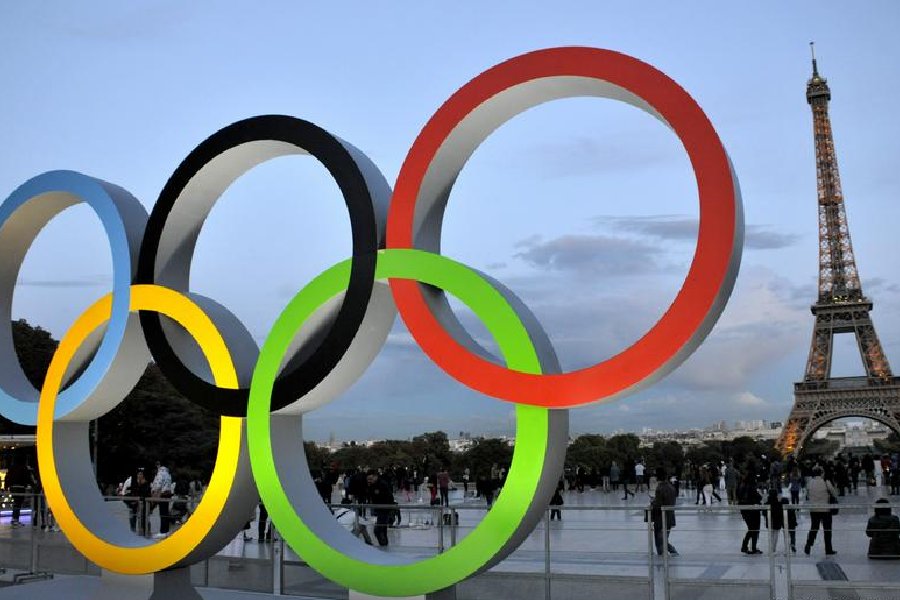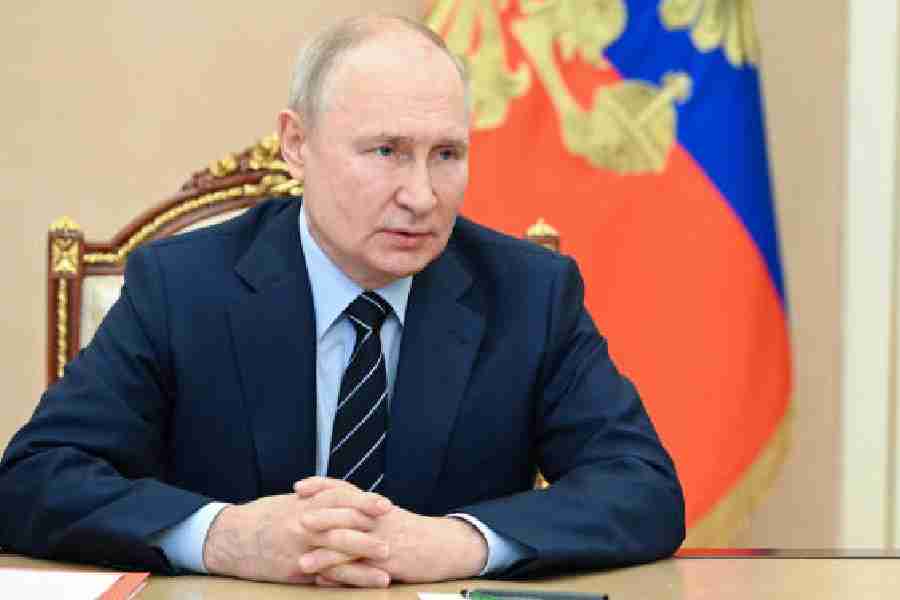A group of members of the European Parliament have called on the International Olympic Committee (IOC) to introduce an anti-war declaration for Russians and Belarusians wanting to compete at next year's Paris Olympics.
The IOC says it is yet to decide whether athletes from Russia and its ally Belarus can participate in the Games, although it has recommended that international sports federations allow some to take part in Olympic qualifying events as neutrals, citing their human rights.
In a letter to the IOC's president, Thomas Bach, the MEPs demanded more clarity on the conditions for participation and suggested that Russian and Belarusian athletes should be required to sign a "statutory" document declaring their opposition to Russia's war in Ukraine.
"By signing, athletes would publicly condemn any aggression against any of the UN (United Nations) member states," the group of 39 MEPs wrote in the letter dated July 21.
Last month, with a year to go before the Paris Olympics, the IOC omitted Russia and Belarus from its official list of Games invitees, but the possibility remains for Russians and Belarusians to compete in the French capital as "Individual Neutral Athletes."
"Though we appreciate not sending official invitations to Russian and Belarusian athletes, it is simply not enough," the MEPs added. "The IOC's efforts must go further and not settle on using neutral flags."
In May, sports ministers from more than 30 countries raised concerns that the IOC's current recommendations — which exclude teams from Russia and Belarus, as well as anyone who has actively supported the war or who is contracted to the military — were open to exploitation.
"While some aspects (...) have been addressed by the IOC, there are substantial issues remaining, not least around military connections of athletes, state funding, the definition of what constitutes teams, and on enforcement mechanisms," the ministers said in a joint statement.
'Red line' for Russia
Signing an anti-war declaration would appear to be a no-go for Russia, with the country's sports minister threatening an all-out boycott of the Olympics if that were to be a requirement for participation.
"There is a red line: No one will sign any declarations to condemn the special military operation and so on," Oleg Matytsin, the sports minister, told Russia's parliament last month, in comments reported by the Russian state news agency TASS. "Our athletes will not participate on such terms."
However, the group of MEPs, made up of politicians from all the main parliamentary parties and from 15 countries including Germany, Poland and the Czech Republic, warned that the absence of a declaration could result in athletes being "used by both regimes for propaganda purposes."
"It is usual for dictators and authoritarian regimes to weaponise sport as an instrument of expanding their influence," the MEPs wrote. "For Russia and the Putin regime, sport is primarily a political tool; this has been clearly demonstrated by the fact that Russia has a state-sponsored doping programme.
"Under the current conditions, the participation of Russia and Belarus, including the teams and support personnel representing these countries, is inadmissible while the aggression against Ukraine is ongoing."
The IOC has previously labeled political interference in sport as "deplorable" and complained that its "autonomy is being undermined by some governments." But in their letter, the MEPs say that the organization should follow its own Olympic Charter, which aims to use sport to promote a peaceful society.
"The IOC thus has to take a clear stance in order not to distance itself from its own values and ignore tens of thousands of Ukrainian casualties, many of them innocent civilians, children but also athletes," the MEPs wrote.
"A decision of such importance cannot be simply devaluated by repeating the principle of 'political neutrality."











